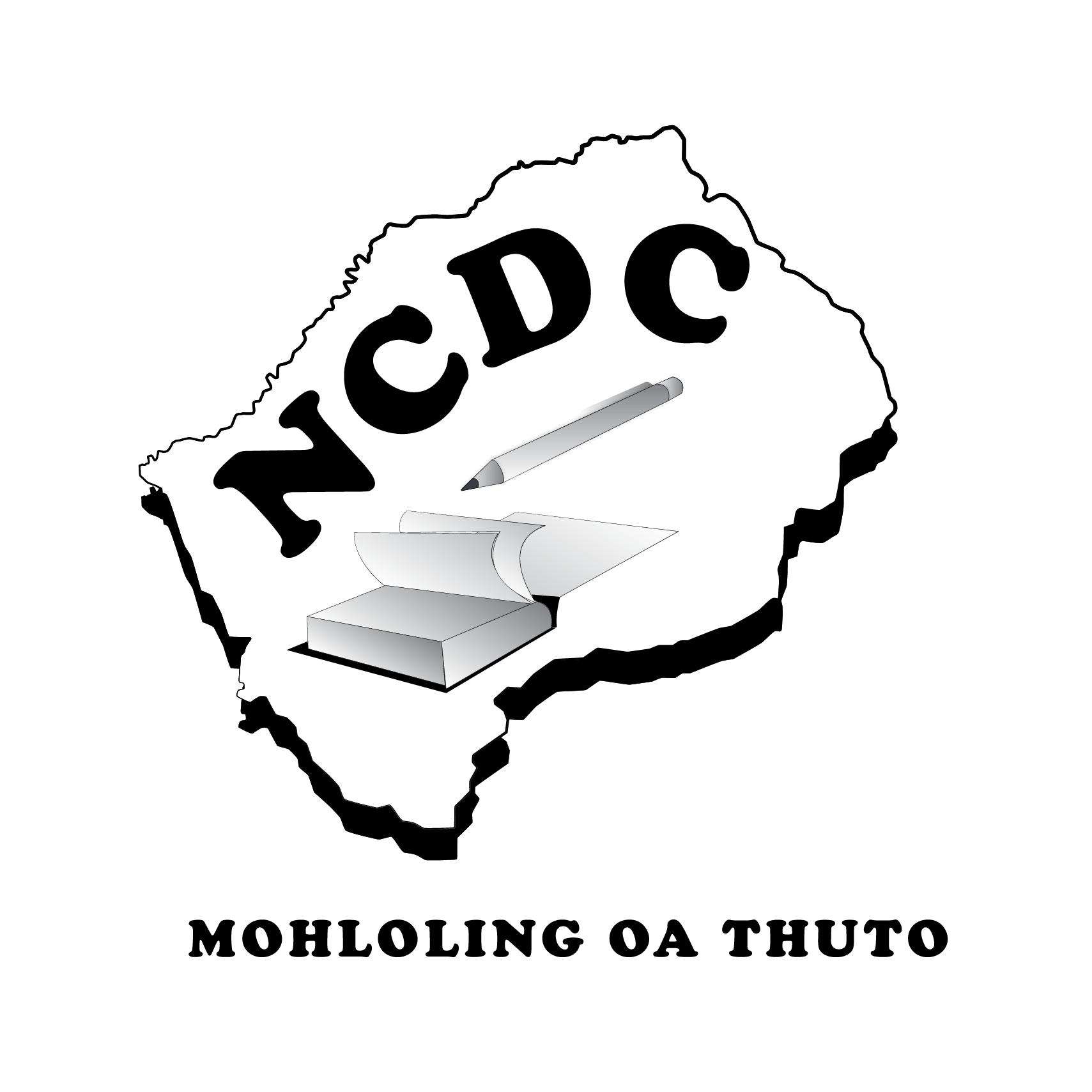Investing in the Future!
Developing and providing relevant and quality education in pre-primary, primary and secondary levels of education
The establishment of the National Curriculum Development Centre (NCDC) as an integral part of the Ministry of Education and Training (MOE) in 1980 was to ensure the provision of quality and relevant education to the people of Lesotho.
This was to be met by providing a curriculum that would respond to the needs of the children in schools and the nation at large. It was been realized that the temporary institution which fulfilled this task in 1974, could not do so effectively unless they transformed it into a permanent institution.
An institution known as the Primary Curriculum Unit and later renamed the Primary Curriculum Research Unit. NCDC has grown both in size and experience in its pursuit of the provision of relevant curriculum.
We have Strategy
We have two important strategies, which have been established in ensuring that the curriculum developed is relevant to the needs of both children and the nation at large. These strategies are coordinated by the National Curriculum Development Centre
Strategy One
The involvement of all relevant stakeholders in the curriculum development process
This strategy ensures that these stakeholders are represented in policy-making and professional-technical levels. These levels have representation from teachers, teacher-training institutions, subjects’ associations, inspectorate, examinations, senior officers of MOE and other institutions.
The National Curriculum Committee (NCC) represents the policy making level while at professional-technical level there are different Subjects’ Panels.
Subjects’ Panels translate educational goals and curriculum policies as determined by NCC in developing curriculum and materials in their respective subjects’ areas.
Strategy Two
The adoption of curriculum planning elements
The second strategy is the adoption of curriculum planning elements to ensure that the curriculum responds to the needs of the learners and the nation as a whole. The following elements have been adopted:
- Situational analysis
- Aims and goals formulation
- Policy decisions
- Curriculum development and trial
- Implementation
- Follow-up
- Monitoring, feedback and evaluation
The National Curriculum
The adoption of curriculum planning elements
The aim is to ensure that learners to become able citizens in society while still in the learning process.
The focus in pedagogy has therefore shifted more to teaching and learning methods that can further develop creativity, independence and survival skills of learners. Learners are to become more responsible for their own learning processes and thus should be able to identify, formulate and solve problems by themselves and evaluate their work.
We believe that teaching methods which are learner-centred based more on learners’ own activities.
Thus, integrated and learner-centred approaches to teaching and learning will be used in implementing curriculum in schools. Embedded within this is an identification of behaviours associated with learning at different developmental stages of the young.
The methods of teaching enable development of skills and attitudes which equip learners and society to influence the rapid social and economic change.
The curriculum development process is a pre-requisite for ensuring relevant and quality education for the nation and its stakeholders at large.
Organization of the school curriculum
The first seven years of Basic Education shall follow an integrated approach managed through five learning areas, with the gradual emergence of subjects in the last three years. The learning areas will form the basis of learning
In the last three years of Basic Education curriculum will be drawn from the core contributing subjects to the respective five learning areas. However, learners/schools will be expected to take content from only eight of the contributing subjects.
Learners will take a minimum of six subjects and a maximum of eight subjects at secondary level.
Sesotho, English, Art & Crafts, Drama, Music and other languages
Compulsory: Sesotho & English
Mathematics
History, Religious Education, Health and Physical Education, Development Studies, Life Skills
Compulsory: Life Skills
Science, Geography, Agricultural Science, Technical Subjects
Compulsory: Science
Business Education, Clothing and Textile, Food and Nutrition, Home Management, ICT, Accounting
Subscribe to stay in the know
Stay up to date with current events, modules and processes established by us. Register your email on our database now!
